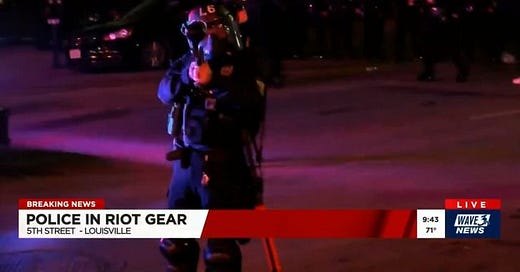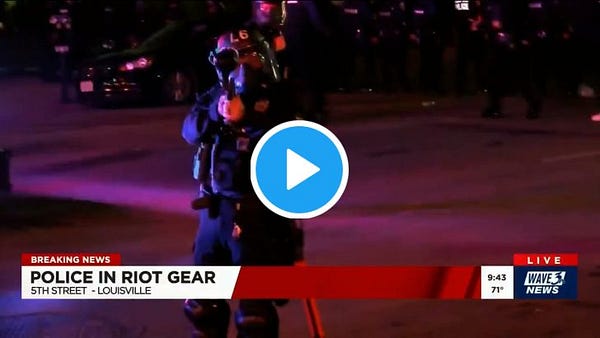Journalists under siege
The rare Sunday column. But after watching my peers get shot at and arrested for doing their jobs, some thoughts popped into my head. I wanted to jot them down before I forgot. While the following isn’t about the business of media, there is a connection, loose though it may be, of how journalists are supported through subscriptions and advertising. Something for us to keep in mind.
“Congress shall make no law respecting an establishment of religion, or prohibiting the free exercise thereof; or abridging the freedom of speech, or of the press; or the right of the people peaceably to assemble, and to petition the government for a redress of grievances.”
For the last four years, the President of the United States has called the press “the enemy of the people.”
He put reporters in a holding pen during rallies in the 2016 campaign, mocking them for asking questions, egging on his supporters to spit at journalists.
He has shared memes of reporters getting run over by trains and trucks, being shot and hanged.
He has decried “unfairness” by a profession whose responsibility is to be fair, giving citizens as much information as available, while at the same time leading an administration that has lied and deceived the American public since his term was not even 24-hours-old.
He has used social platforms like Twitter and Facebook to not only spread hate, but foment division among us.
This weekend, that division was made crystal clear, as cities across the nation engaged in the foundational right of protest - the protest of a system that has put down black people for 400 years; the protest of a system that has twisted its guiding principles away from ‘serve and protect’ to a militarized force.
And taken to one of the several logical conclusions of this tense moment in time, journalists, American citizens, were shot by police, also American citizens.





Talking to the Washington Post’s Margaret Sullivan, Suzanne Nossel, CEO of PEN America, a nonprofit “devoted to free expression,” said:
“By denigrating journalists so often, he has degraded respect for what journalists do and the crucial role they play in a democracy. He’s been remarkably effective in contributing to this topsy-turvy sense that journalists are the opposition.”
You can go to Twitter or any website or TV news program and you will see more. As the last week intensified, particularly with Trump’s rage against Twitter, it’s hard not to draw the direct line from the president’s words to the police’s behavior.

And make no mistake, what’s happening now has been the central and defining tension of the American experiment: how one group of people, through words, behaviors, actions, and policies have kept another group of people down. It’s now being signified through kneeling, as the Washington Post’s Sally Jenkins wrote yesterday:
Two knees. One protesting in the grass, one pressing on the back of a man’s neck. Choose. You have to choose which knee you will defend. There are no half choices; there is no room for indifference. There is only the knee of protest or the knee on the neck.
We are in tumultuous times. A pandemic, which has killed more Americans than the Vietnam, Korean, Gulf and Afghanistan Wars combined; an unemployment rate that is hovering around the unemployment rate of the Great Depression; protests against police brutality; riots against systemic racism; and the underlying effects of climate change, especially as we enter what is forecast to be a brutal hurricane season.
And through all of this, we have a president who continually stokes hatred and aims his vitriol at the press, the very cornerstone of our democracy.
The right to a free press, to openly criticize and ask questions of our government, was so important to the framers of our nation, that they put it right in the First Amendment in the Bill of Rights.
The First Amendment also gives us the right, as citizens, to peacefully assemble. It’s become harder to do when a militarized police force is inimical to gathering; and when the chief executive of the nation pits American against American. Especially when the Americans telling these stories are under siege.
Thank you for allowing me in your inbox, especially on the weekend. If you have tips or thoughts to share about this newsletter, please drop me a line.





